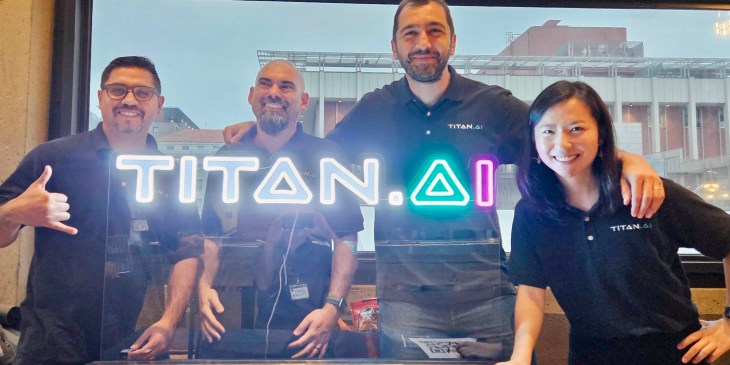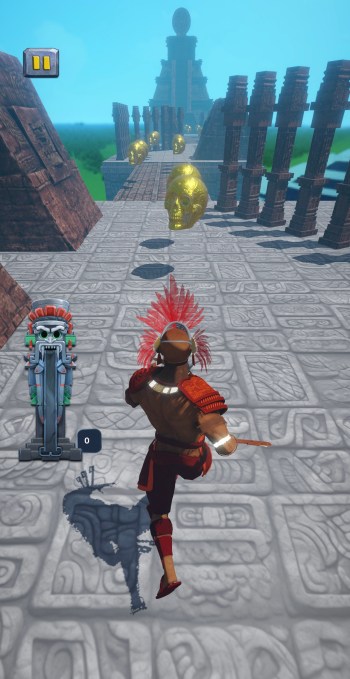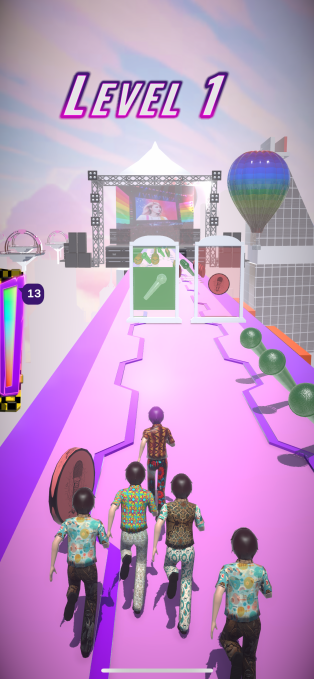Generative AI is attracting a significant level of investment, including in the gaming space. Titan AI, a new mobile games studio, raised more than $500,000 in pre-seed funding led by Berkeley SkyDeck. Titan AI joins several other generative AI gaming startups that aim to reduce the cost and speed of creating 2D and 3D content for games. Depending on the complexity, mobile games can cost upwards of $250,000 to make.
Titan AI uses image generators Stable Diffusion and DALL-E to create 2D graphics and then uses proprietary technology to combine those elements with 3D models. The company is also training AI to build level segments — easy, medium and hard — which co-founder Fabien-Pierre Nicolas claims is another “labor-intensive task.”
Titan AI was founded by Nicolas, former vice president of U.S. marketing at SmartNews and Victor Ceitelis, the co-founder of Scenario, a generative AI startup that enables game developers to create custom image generators.
The company’s most important objective is to create more inclusive experiences for players who are largely underrepresented in games.
“We both saw an opportunity to help many people feel better represented in games, a central element of today’s entertainment culture, and making games for people we love — our families,” Nicolas told TechCrunch. Nicolas grew up with an LGBTQ+ parent and his wife is Korean. Meanwhile, Ceitelis is LatinX and was born to Chilean parents.
“In many games and movies, the hero plunders and steals treasures from Mesoamerican culture. [Ceitelis] never saw his people be the hero in games,” Nicolas added. This is why Titan AI wanted its first game, Aztec Spirit Run, to “reverse the trend” and feature a main character who races against Conquistadores to defend the temple’s treasure.
The studio launched three other prototypes– KPop Dream Run, Reptile Dream Run and Holy Bible Run: Jesus Miracles.
Endless runner games like Temple Run and Subway Surfers have been popular for quite some time (over a decade), so following this runner template is an easy bet — especially for developers who want to play around with generative AI. Titan AI has used the technology to build hundreds of in-game character customization elements, such as “outfits and tattoos,” Nicolas explained. The company will later add the ability for characters to run faster as well as collect more items like golden skulls.
“As part of our research early on, we discovered that most people in the under-represented segments played at least one runner,” Nicolas said.
However, while runner games have proven to be very addictive and could be successful for Titan AI, many will likely argue that it’s overdone. The future of generative AI in gaming is rife with possibilities, so we look forward to seeing what else the company can come up with. For instance, generative AI could enable players to design their own in-game avatar from scratch.
“The runner template was to test our platform’s capabilities to create playable prototypes with 3D elements… our proprietary AI allows us to test other hypotheses around AI-level building,” Nicolas said. He revealed that the company is experimenting with another game template yet didn’t say what that was.
Since Titan AI believes accessibility is key for underserved audiences, the studio has made all its games free to play. The company earns its revenue from in-app ads and paid features.
Nicolas points out that Titan AI’s funding round represents “a story of hope and optimism in the current ‘doom and gloom’ in the gaming industry: a new studio raising money with a positive mission for the world,” he said.
Seven angel investors also participated in the round, including Andreas Gross, generative AI product leader at Meta, BlackoutLab co-founder Benjamin De la Clémendière, Belka Games co-founder Yury Mazanik and Bob Meese, Duolingo’s chief business officer.


